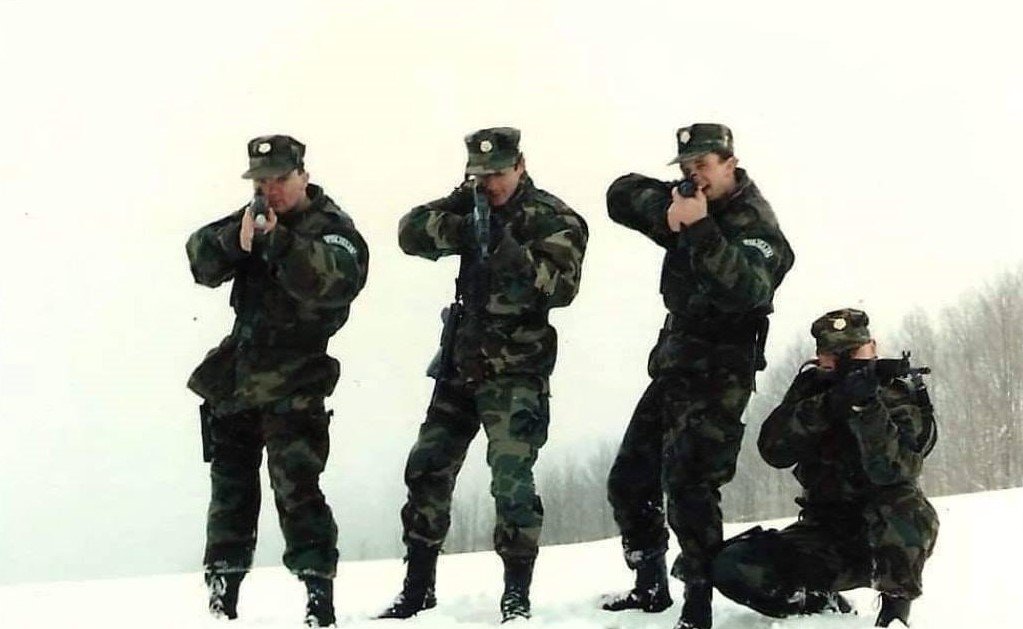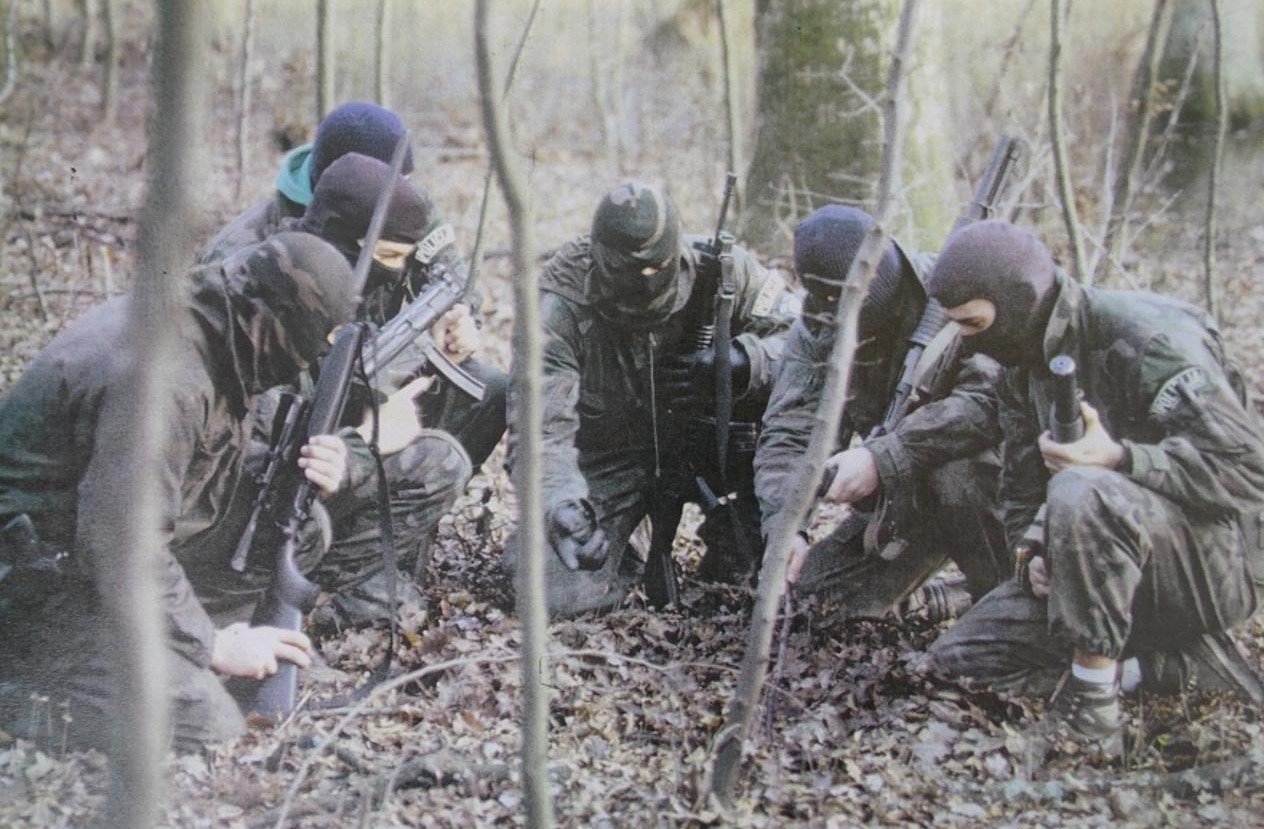The Lučko Anti-Terrorist Unit (ATU) of the Ministry of the Interior of the Republic of Croatia was established on 7 September 1990.
ATU Lučko had previously existed as part of the Public Security Service of the Socialist Republic of Croatia in the former Yugoslavia. After the first multi-party elections and establishment of a new, democratically elected government on 30 May 1990 the Republic of Croatia faced destabilization of the constitutional order by rebel Serbs. Concerned about the disturbance of public order and peace in areas where Serbs made up the majority of the population, the Croatian government decided to take action. The First Croatian Police Officer Course was launched and over 1,700 participants recruited and trained.

Upon completion of the course, approximately two hundred candidates who were deemed physically and mentally most capable became the core of the new ATU Lučko. The unit also included a small number of members of special units of the former Republic Secretariat of Internal Affairs.
In its beginnings, the unit was assigned to ensure public order and peace in areas of the Republic of Croatia where Serbian rebels violated its constitutional and territorial integrity. ATU Lučko’s existence was necessary given the events of September 1990 when Croatian Serbs began armed terrorist activities and attacks on seven police stations from which they stole weapons. The unit’s missions were greatly assisted by special forces such as the Rakitje Special Task Force from which the 1st Guard “Tigers” Brigade was later formed.
The unit’s baptism of fire took place on 1 March 1991 in Pakrac as members of ATU Lučko successfully defeated Serbian terrorists in what many considered the beginning of the war in Croatia. This was followed by “Bloody Easter” in Plitvice, missions in the Banovina and Kordun regions, Pakrac once again and then numerous assignments in Okučani, Dubica, Delnice, Marinci, Dubrovnik and Cavtat.

In addition to its own intensive preparation and training of groups that were the genesis of the Croatian Army, ATU Lučko participated in taking over military bases in Delnice, Samobor, Dubok Jarak, Dugo Selo and Prečko; the Command of the 5th Air Corps; blockade of the “Marshal Tito” barracks and Zagreb Airport; the capture of a military beacon on Sljeme Mountain and the arrest of Yugoslav Army General Milan Aksentijević.
Later in the war, the unit played an important role in the “Maslenica”, “Medak pocket”, “Flash” and “Storm” liberation operations as they cleared freed areas of any remnants of Serbian terrorism.
Fourteen members of the Lučko Anti-Terrorist Unit were killed during the Homeland War. Many were wounded and out of 350 who served during the conflict, several became generals and high-ranking officers in the Croatian Army as well as Police. ATU Lučko is still the most elite special unit of the Croatian police.
Sources
Brajković, Zvonko, Zvonimir Despot i Mario Werhas. Akcije specijalne policije MUP-a u operaciji “Oluja” : operacija “Oluja – Obruč” i djelovanje Specijalne policije kolovoz – listopad 1995. Zagreb: Večernji list, 2012
Monografija Policija u Domovinskom ratu 1990. – 1991. Zagreb: Ministarstvo unutarnjih poslova Republike Hrvatske, 2011
Monografija Hrvatska policija u Domovinskom ratu. Zagreb: Ministarstvo unutarnjih poslova Republike Hrvatske, 2011
Monografija Specijalna policija u Domovinskom ratu 1990.-1996. Zagreb: Udruga specijalne policije iz Domovinskog rata, 2017
Magistar sam povijesti. Radno iskustvo stjecao sam u Hrvatskom povijesnom muzeju i na Hrvatskoj radioteleviziji u emisiji TV Kalendar. Autor sam nekoliko knjiga i filmova na temu Domovinskog rata. Osnovao sam i uređujem Facebook stranicu Dogodilo se na današnji dan – Domovinski rat i portal Domovinskirat.hr. Također uređujem i vodim emisiju Domoljubne minute koja se svakog dana emitira na Hrvatskom katoličkom radiju te emisiju Sve za Hrvatsku i Novi valovi dobrote. Vlasnik sam obrta CroHis kojim promičem vrijednosti Domovinskog rata.

